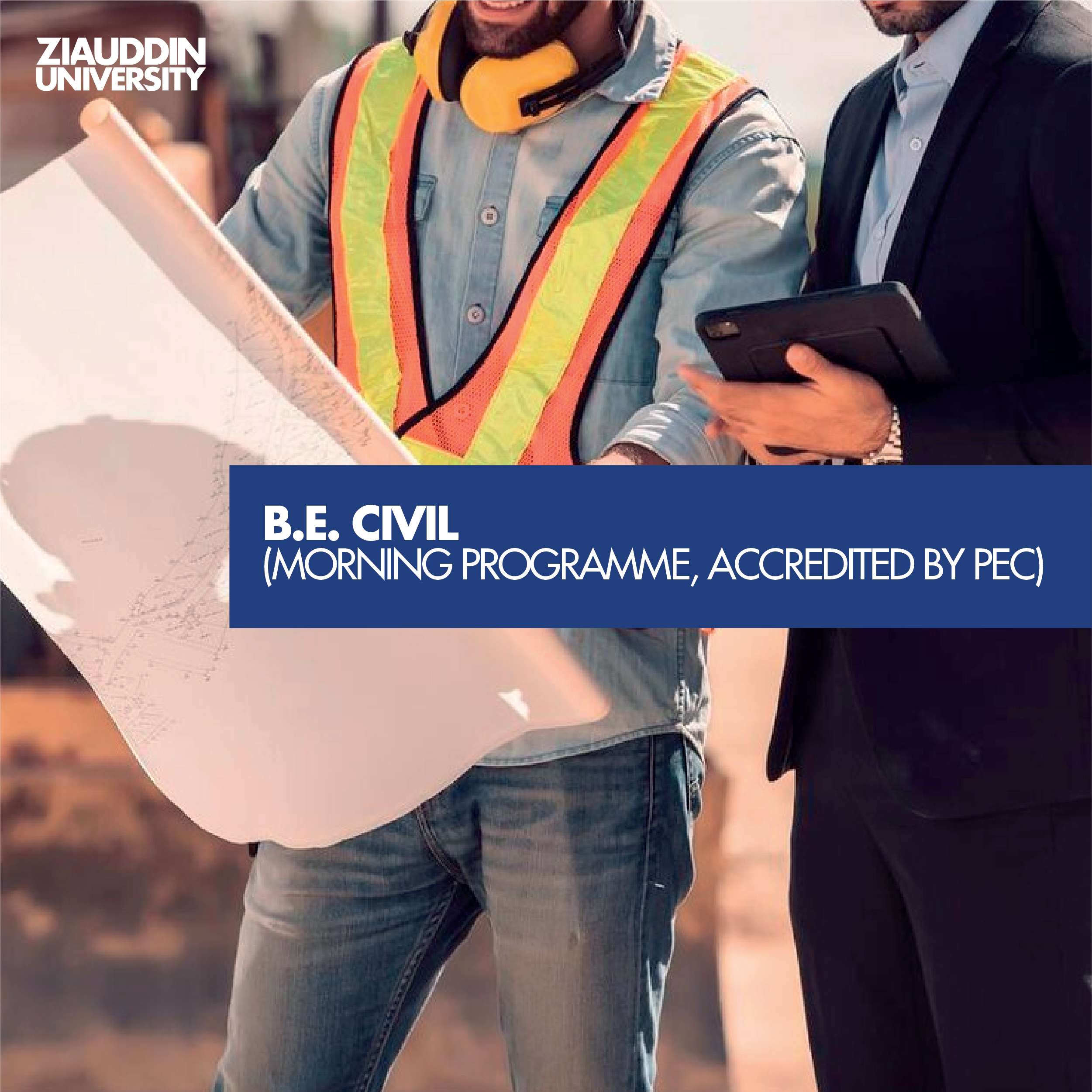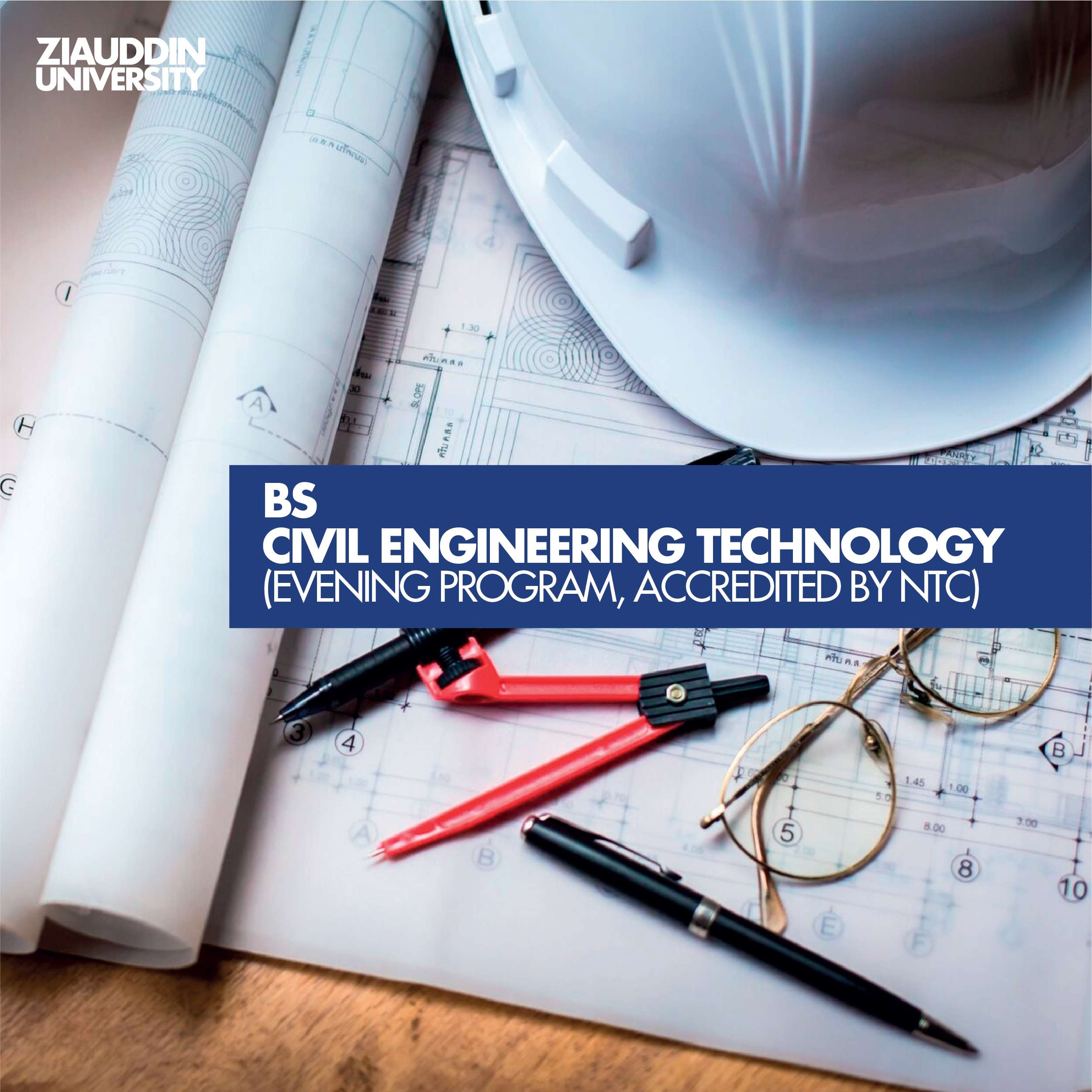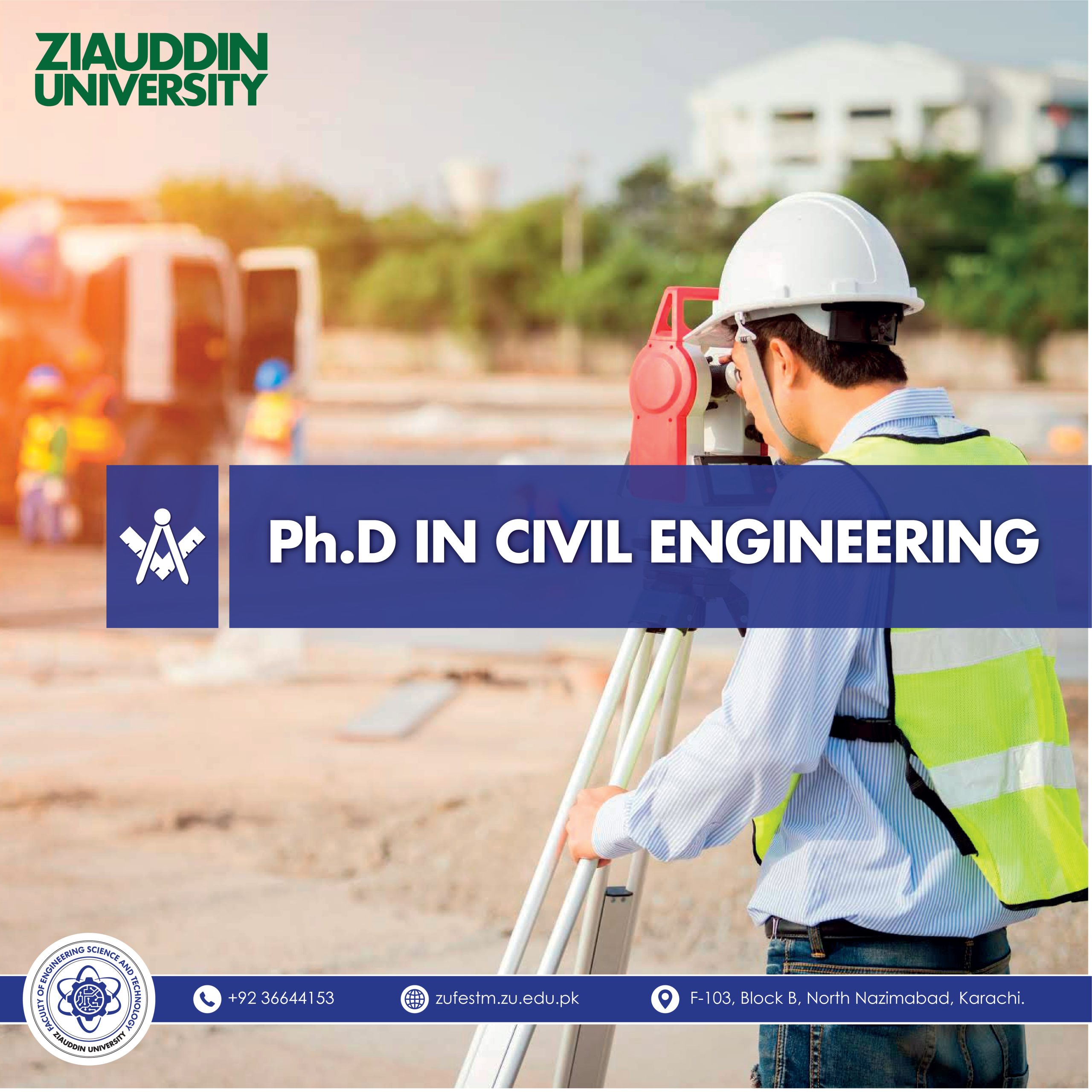Department of Civil Engineering
- Introduction
- Undergraduate
- Postgraduate
The Department of Civil Engineering was established in 2017 under the Faculty of Engineering, Science, Technology, and Management (ZUFESTM) with the aim of producing proficient scientists, engineers, and technologists equipped to meet the evolving demands of the industry. The department is currently offering two undergraduate and one postgraduate programme, approved by the Higher Education Commission (HEC), at the Link Road Campus, Karachi.
The Department of Civil Engineering is committed to providing cutting-edge laboratory facilities, an interactive learning environment, and highly qualified faculty members. The department is well equipped with laboratories for Surveying, Engineering Mechanics, Fluid Mechanics & Hydrology, Mechanics of Solids, Construction Engineering, Material Testing, Drawing studio and Computing Lab. A strong emphasis is placed on the practical application of knowledge, ensuring a balanced integration of theory and hands-on experience. The faculty members bring a depth of industrial and academic expertise to the table, enriching the learning process. To further support students, a dedicated team of lab staff and attendants is maintained. In the pursuit of advancing the frontiers of Civil Engineering research, the Dr. Aijaz Fatima Library has an extensive collection of Civil Engineering titles tailored to various specialisations at the Link Road Campus. Furthermore, the department takes pride in its PEC and NTC accreditations for its programmes, as well as the alignment of its curriculum with HEC/NCRC standards.
The Department of Civil Engineering is dedicated to fostering a vibrant academic community where innovation and collaboration thrive. The aim is to empower students to make informed choices and contribute effectively to the ever-evolving landscape of Civil Engineering, equipped with both theoretical knowledge and practical skills. Students are encouraged to engage in research projects, internships, and extracurricular activities that not only enhance their academic journey but also prepare them for real-world challenges in the field. As students progress through the programmes, they develop the technical prowess and discerning capabilities necessary to excel in the field of Civil Engineering. Through a holistic approach to education, the department strives to produce graduates who not only excel in their technical skills but also possess strong problem-solving abilities, effective communication skills, and a deep commitment to ethical practises in Civil Engineering. Overall, this effort is shaping the future of the industry and empowering students to become leaders in their chosen fields.
| Contact Numbers | 021-36644153 |
| 021-36684406 |
Location
BE Civil Engineering | EDUCATION CITY, Link Road, Gadap Town, Karachi, |
BS Civil Engineering Technology | F-103, Block-B Block B North Nazimabad Town, Karachi, Sindh 74600 |




